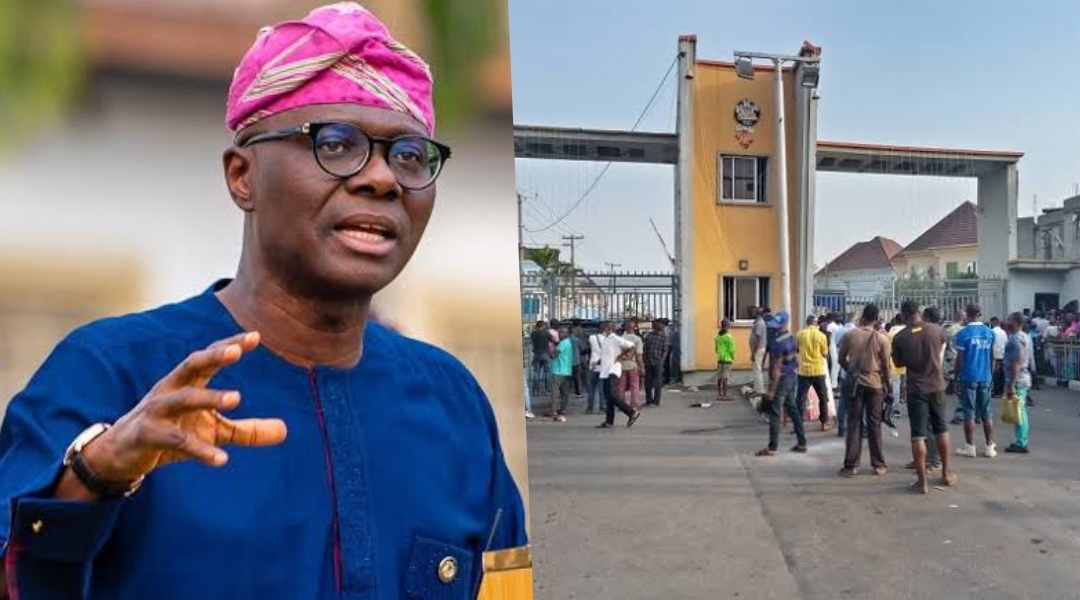Magodo: Lagos govt returns to Supreme Court as settlement talks break down

Lagos State Government has approached the Supreme Court to seek clarification on the judgment delivered by the apex court on the ownership of the Shangisha/Magodo land.
Gbenga Omotoso, Lagos Commissioner for Information, in a statement on Friday, disclosed that the move to approach the apex court followed the failure of landlords to reach a consensus on how the certificates of occupancy on the plot of lands allocated to the Shangisha landlords would be issued.
“Following the intervention of Lagos State Governor, Babajide Sanwo-Olu, officials of the State Government and representatives of the Shangisha Landlords Association (the judgment creditors) held a series of meetings at which both parties explored the possibility of complying with the judgment of the Supreme Court,” the statement reads.
“Given the sharp divide between the two factions of the judgment creditors on who has authority to represent the Association and the disagreement regarding whom the certificate of occupancy should be issued (collectively or individually), the State Government has approached the Supreme Court to seek further directives and clarifications on both issues,” it added.
The Attorney General of the Federation, Abubakar Malami, while wading into the dispute in January disclosed that he ordered the police to invade the estate to enforce Supreme Court’s judgement.
Mr Malami, in a statement by his spokesman, Umar Gwandu, noted the controversy ensued over a failure of the Lagos government to follow through with a Supreme Court judgment.
Mr Malami stated that he was displeased with “the South-West governors’ unjustifiable insinuation of impunity against the office of the attorney general over (the) execution of a judgment of the Supreme Court.”
However, the Lagos state government in January disclosed that it had reached an agreement with the landlords on a settlement plan after the Supreme court ordered it to give some landlords 549 plots of land as a “matter of first priority” following the demolition of their properties at Shangisha.
The race for possession of Magodo began in 1988 when the Shangisha Landlord Association challenged the Lagos government. After multiple proceedings at the high court, the appeal court and the Supreme Court, it was ruled that members of the association should be given 549 plots of land in the area.
We have recently deactivated our website's comment provider in favour of other channels of distribution and commentary. We encourage you to join the conversation on our stories via our Facebook, Twitter and other social media pages.
More from Peoples Gazette

Politics
Katsina youths pledge to deliver over 2 million votes to Atiku
“Katsina State is Atiku’s political base because it is his second home.”

Port Harcourt
Burnt Rivers Assembly: Court sets aside arrest warrant against Fubara’s chief of staff
On January 31, the judge issued a warrant for the arrest of Mr Ehie over his alleged involvement in the burning of part of the Rivers’ House of Assembly.

Politics
Keyamo overreacting, should apologise, lift Dana’s flight suspension: ART
Aviation minister Festus Keyamo has been reprimanded for trying to usurp the authority of the NCAA.

NationWide
Merging Civil Defence with police will worsen Nigeria’s insecurity, FG warned
“It is obvious that persons seeking the merger are ignorant of the roles of NSCDC as a special purpose security vehicle,” a security expert said.

Africa
South Africa’s systemic corruption closely related to ex-President Jacob Zuma’s administration: Report
The report alleged that “high-level political interference has undermined the country’s National Prosecuting Authority from responding to corruption.

Africa
Police corruption big problem in Kenya; security force compromised under President Ruto: U.S. Govt
Not only did the government try to cover up police-related killings, but Kenyan authorities asked medical personnel to keep silent on deaths recorded from police brutality.

NationWide
No one should die of malaria in Africa: WHO
“No one should die from malaria in Africa; indeed, every single malaria death is a death too many because malaria is preventable and treatable,” said WHO.








